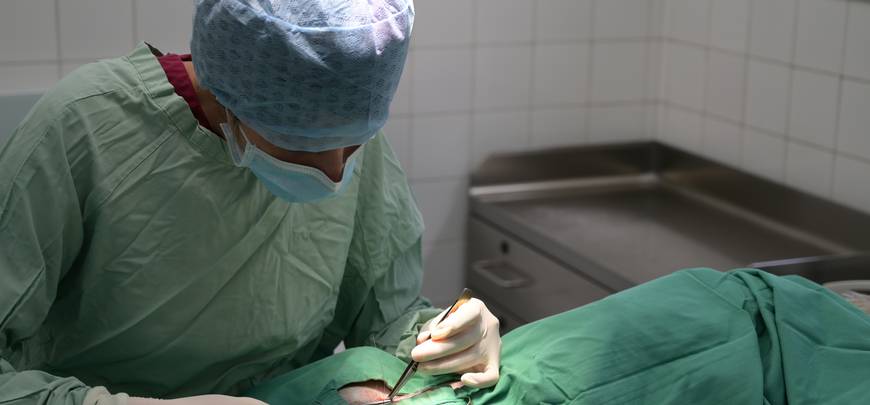Opening Hours
-
Mon 8:30 - 18:00
Tue 8:30 - 18:00
Wed 8:30 - 18:00
Thu 8:30 - 18:00
Fri 8:30 - 18:00
Sat 8:30 - 12:00
Sun Closed
Contact Info
Neutering

Overview
Deciding whether to book your pet in the neutering can be a difficult decision. We hope that this information will help you to make the correct decision for your pet.
Neutering in a female dog (bitch) or cat (queen) is often called ‘spaying’. This involves removing the ovaries and most of the uterus (womb). For a male dog or tom cat the term used is ‘castration’ and involves removing the testicles.
It is becoming increasingly common for us to perform these procedures on rabbits and also guinea pigs (mainly castrations.)
Benefits for Dogs
- Prevents unwanted pregnancies.
- You will not have to deal with the inconvenience of your female dog’s season. She may bleed for up to three weeks when ‘on heat’ and you will not be able to take her for walks during this time. Most bitches will normally have two seasons per year.
- Female dogs may suffer from false pregnancies after a season (spaying stops the seasons).
- Spaying before the second season has been shown to dramatically reduce the incidence of breast cancer in later life.
- Older unneutered bitches often suffer from womb infections (pyometra) which makes them very ill and requires an expensive emergency hysterectomy to save their life.
- Castrating a dog will curb his need to roam, thus less likely to get lost or involved in accidents or fights.
- Castration will stop oversexed behaviour and generally makes dogs easier to manage and more obedient. It may also moderate aggressive behaviour but is not a substitute for good socialisation and training.
- Older dogs often suffer from prostatic enlargement and growths near the anus; this does not normally occur in neutered dogs.
Cons for Dogs
- Neutering changes your pet’s metabolic rate and he or she will normally need less food. We recommend that you feed between a quarter to a third less food following the surgery and that you should bring your pet for a free weight check after six to eight weeks in order that we can monitor his/her weight and condition.
- Some breeds experience slight coat changes, usually a slightly fluffy coat on long haired breeds e.g. Spaniels.
- There does appear to be a slightly higher incidence of urinary incontinence in older spayed bitches. It tends to affect the larger breeds and docked breeds more often e.g. Dobermans. We recommend that the larger breed dogs have one season before spaying to limit this risk. Incontinence can be treated medically.
How to Time the Surgery?
- Male dogs should be roughly six months of age but can be done a bit younger if preferred for behavioural reasons. Large breed dogs may be left until about ten months old.
- Bitches should be booked in for surgery around six months of age or 3-4 months after a season.
- Please telephone the surgery to book an appointment.
Cats
- Female cats are seasonal breeders and will usually come into season every two or three weeks from January through to the autumn and can have three litters per year. When your cat is in season she will be much more vocal (‘calling’) and will try and escape to mate. The neighbourhood toms will visit your garden and you may hear fights and caterwauling.
- Tom cats are much more likely to roam. This increases the risk of road traffic accidents and also the chance of them being involved in fights. In addition to the obvious risk of bite wounds and infections (abscesses) developing, this also increases the risk of your cat becoming infected with the feline AIDS virus (FIV) or feline leukaemia virus (FeLV) No effective treatment exists for these two viral infections.
- Castrated cats will rarely spray indoors.
- Cats can be neutered from 4 months of age but again we often work on a rough guideline of six months of age as a good time to perform the surgery.
- If your female cat is ‘calling’ we would suggest that she be spayed within a week in order to prevent unwanted pregnancies.
- Cats recover very quickly from surgery and you will have your pet back to his/her normal mischievous self within a few days.
Rabbits and Guinea Pigs
- Rabbits breed like…well rabbits! If you want to keep rabbits of different sexes together then you have little choice but to have one or both neutered.
- Female rabbits can be a little difficult to handle at times and shall we say ‘spiteful’. Although not a substitute for regular handling from a young age, spaying does appear to make them less aggressive. It also limits urine spraying by bucks and digging and fur-pulling behaviour of does.
- Older does also suffer from cancer or infection of the womb fairly often and spaying will obviously prevent this happening.
- Although possible to spay smaller furries, we tend to only perform castrations on smaller animals such as guinea pigs and chinchillas.
- Neutering of male rabbits is performed at 14 weeks of age and the does should be done at 5 months of age. Please keep the sexes apart for at least 4 weeks following the surgery to be safe since live sperm will remain in the tubes after surgery.

